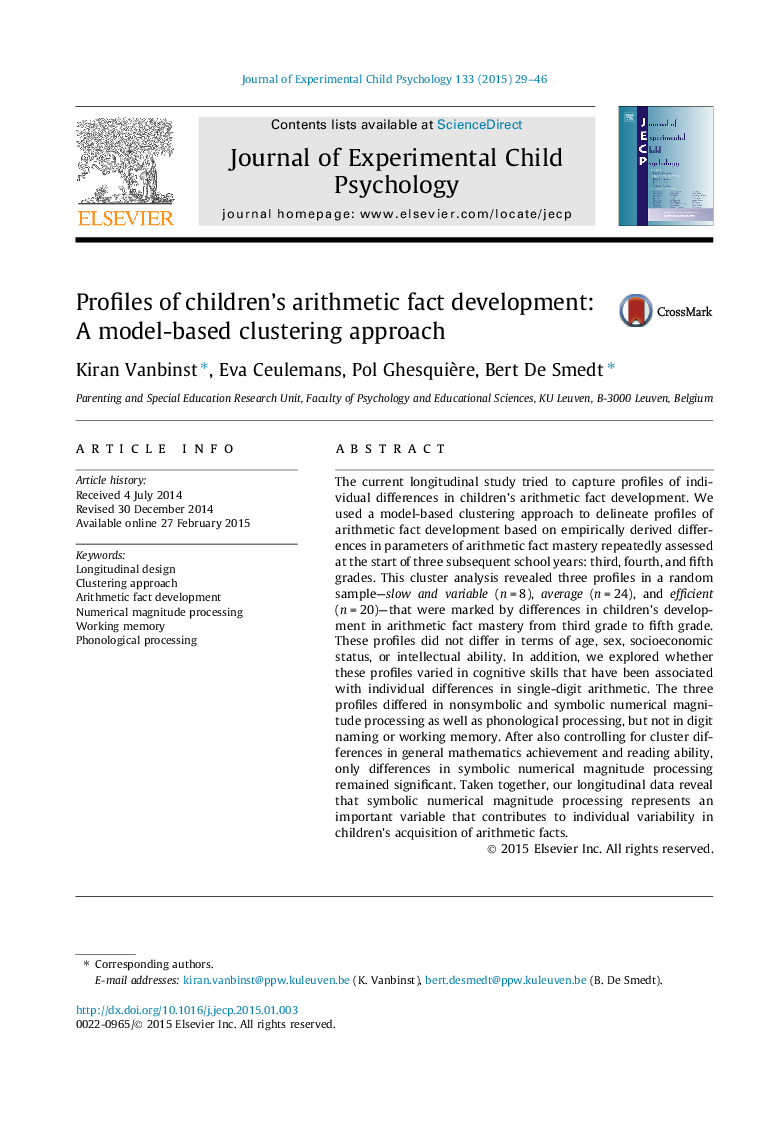| Article ID | Journal | Published Year | Pages | File Type |
|---|---|---|---|---|
| 917993 | Journal of Experimental Child Psychology | 2015 | 18 Pages |
•We used a model-based clustering approach to identify fact development profiles.•Fact retrieval skills were longitudinally assessed from third to fifth grade.•Three developmental profiles emerged: “slow and variable”; “average”; “efficient”.•Profiles differed in fact retrieval, numerical magnitude processing and phonology.•Symbolic magnitude processing was the strongest predictor of fact development.
The current longitudinal study tried to capture profiles of individual differences in children’s arithmetic fact development. We used a model-based clustering approach to delineate profiles of arithmetic fact development based on empirically derived differences in parameters of arithmetic fact mastery repeatedly assessed at the start of three subsequent school years: third, fourth, and fifth grades. This cluster analysis revealed three profiles in a random sample—slow and variable (n = 8), average (n = 24), and efficient (n = 20)—that were marked by differences in children’s development in arithmetic fact mastery from third grade to fifth grade. These profiles did not differ in terms of age, sex, socioeconomic status, or intellectual ability. In addition, we explored whether these profiles varied in cognitive skills that have been associated with individual differences in single-digit arithmetic. The three profiles differed in nonsymbolic and symbolic numerical magnitude processing as well as phonological processing, but not in digit naming or working memory. After also controlling for cluster differences in general mathematics achievement and reading ability, only differences in symbolic numerical magnitude processing remained significant. Taken together, our longitudinal data reveal that symbolic numerical magnitude processing represents an important variable that contributes to individual variability in children’s acquisition of arithmetic facts.
